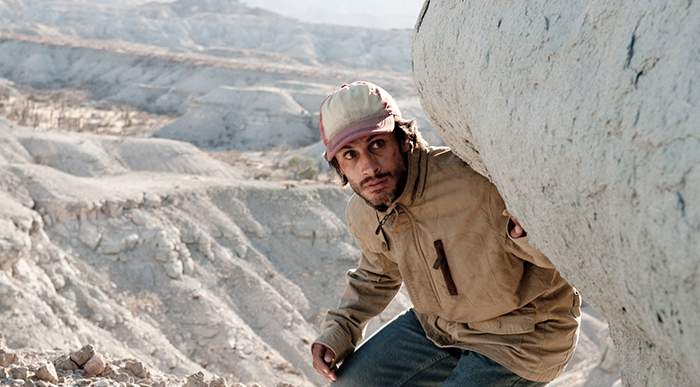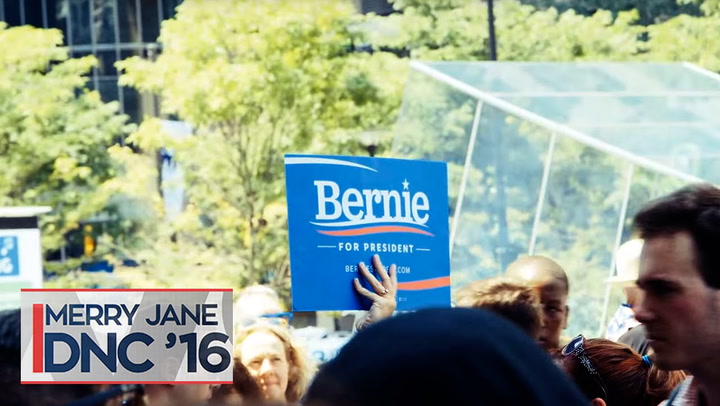The debate over illegal immigration has been going on for a long time in this country, more so in recent times as the Republican presidential nominee has loudly promised to build a wall to keep out migrants coming in from Mexico and Central America. While he has offered no specific details on how he would accomplish this massive barrier, except to say that he’ll make Mexico pay for it, his rhetoric—no matter how unbelievable it sounds—has spoken directly to a disgruntled segment of the U.S. population.
The most vocal of these people are said to possess a “silent rage” about the economy and shifting racial demographics, and are the type who leave nasty online comments. Some of them—described as the alt-right but really just racists—actually physically assault minorities, whether at rallies or on the street.
It’s this type of extremist who is the villain in Jonás Cuarón’s Desierto, a tense, action-thriller set in the unforgiving desert that depicts the plight of border-crossing immigrants who run into a gun-toting gringo (styled after the self-appointed Minutemen) who wants to stop them at all costs.
The character is named Sam (Jeffrey Dean Morgan, who plays Negan on The Walking Dead), and although we never see what his life is like away from the desert, we can surmise through Morgan’s skillful acting that he’s most likely a miserable man, who is probably an alcoholic and whose only friend in the world seems to be a pet dog who he has trained to hunt rabbits—and humans.
One can almost feel his impotence as he picks up a rifle and fires lethal shot after shot at his terrified targets. He’s angry, but he’s powerless against the real enemy, the mighty banks and corporations that take people’s homes and cut their wages. (His name could very well be a reference to Uncle Sam.) Defeated, he’s been reduced to a sad, raging, little man. A murderer. Someone who can only lash out against the people he’s been told his whole life that he’s superior to.
Amongst his intended victims is Gael Garcia Bernal’s character, Moises, a decent, hard-working guy who has lived in the U.S. for years but was deported after a routine traffic stop. Now he’s on a journey to get back home to his family. In him, there’s an opportunity to humanize migrants, and go beyond their usual role of being merely statistics for blatant political motives or boogiemen for a fearful country at the mercy of the elite’s whims and wishes.
Jonás Cuarón, who co-wrote Gravity (2013) with his father, Alfonso Cuarón, makes the violence in the film impactful and dramatic, bringing you close to the bodies as the the bullets rip viciously through flesh as they run desperately for their lives. (The killing scene bares resemblance to the shooting arrows scene in Apocalypto.)
At a press conference held at a studio in West Hollywood, Bernal explained that he would not have taken the role had he not previously directed short documentaries and spent time with migrants.
“We wanted to open up a new discussion that understands that migration [is] a natural phenomenon,” he says. “[It’s] something that needs to exist in order for humans to exist on Earth. And instead of criminalizing it, we should talk about regulating and legalizing it because we’re just criminalizing the wrong people. It is not easy, it’s complicated. But we need to create much more good will.”
Morgan, who looks tired from a long day of interviews, perks up, and says: “My God, that’s the best answer I’ve heard. Every answer I gave about this ends with, ‘Fuck Trump.’”
Everybody in the room laughs. But in this toxic political climate that we live in, there’s been no shortage of racist commentary about Desierto, as evidenced in this “Words are as dangerous as bullets” promo. Some of it may just be desensitized trolls stirring things up by saying things they normally would never say to someone’s face, but amongst them there really are people who see killer Sam as a hero.
“Me, personally, I think that if you think Jeffrey’s character is a hero, you’ve probably been bombarded with so many speeches of hatred that claim migrants are the scapegoats,” says Cuarón. “You don’t really understand the way things really are.”
So what does it say about our society where people cheer for the death of the poor and downtrodden seeking a better life?
“I think the answer is a sad one,” says Morgan. “And we’re finding out every day that it’s a little bit more sad than we had hoped.”











